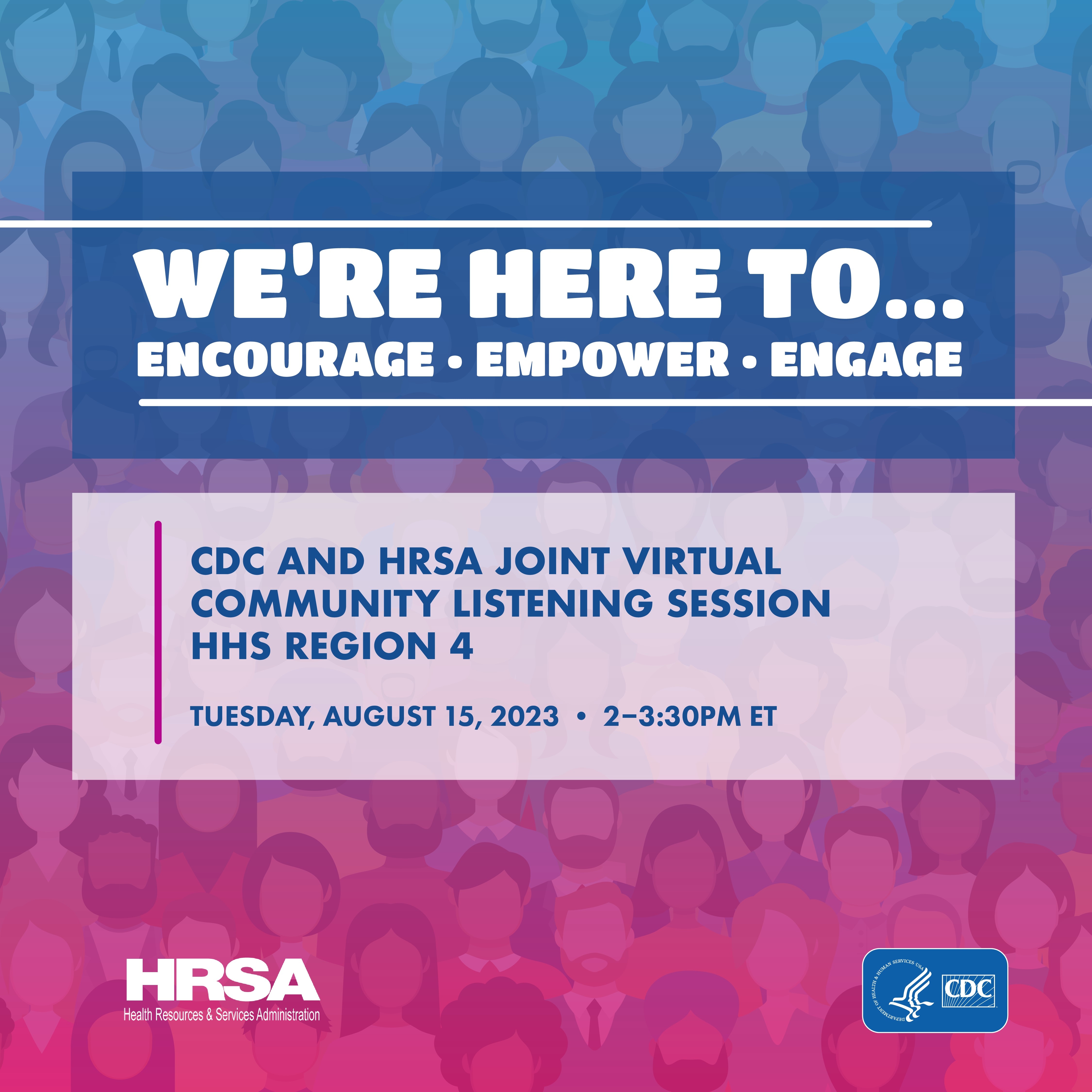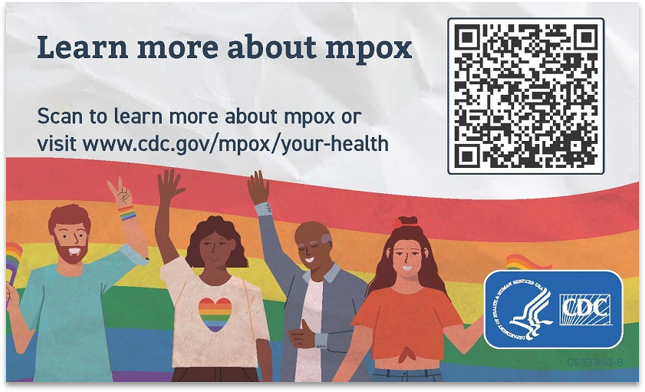
HRSA and CDC jointly-hosted 14 public health leader and community listening sessions in regions across the country throughout 2023.
HRSA Collaborates with other Federal Agencies to Improve HIV Health Outcomes and Accelerate the End of the Epidemic
Collaborations among federal agencies demonstrate a long-standing commitment to understanding and addressing the challenges people with HIV face related to accessing HIV care and essential support services. In 2023, the Health Resources and Services Administration (HRSA) HIV/AIDS Bureau (HAB) partnered with the Centers for Disease Control and Prevention (CDC), Centers for Medicare & Medicaid Services (CMS), and U.S. Department of Housing and Urban Development (HUD) to pursue several initiatives focused on reducing barriers to care to improve health outcomes among people with HIV and help achieve the goals of the Ending the HIV Epidemic in the U.S. (EHE) initiative.
Medicaid Continuous Enrollment Unwinding
With the end of the COVID-19 public health emergency on May 11, 2023, and the winding down of the enhanced federal funding that kept people continuously enrolled in Medicaid, states have begun processing Medicaid redeterminations, which may result in Medicaid eligibility renewals or terminations. A loss of or gaps in health care coverage could have major implications for people with HIV. Studies have shown that people with HIV who have Medicaid and receive Ryan White HIV/AIDS Program (RWHAP) services have higher rates of viral suppression than people on Medicaid who do not receive those services. Throughout 2023, HRSA HAB has been working with CMS and RWHAP recipients and subrecipients to help minimize a potential loss of health care coverage for RWHAP clients currently on Medicaid due to the Medicaid continuous enrollment unwinding. HRSA HAB released a March 2023 program letter, which outlined specific actions that RWHAP recipients and subrecipients can take as they assist clients with navigating the unwinding of Medicaid continuous enrollment. These actions include identifying and assisting clients who are at risk of losing Medicaid coverage and increasing the number of staff dedicated to engagement, education, renewal, and enrollment activities for Medicaid-eligible clients.
Community Listening Sessions
During the past year, HRSA HAB collaborated with HRSA’s Bureau of Primary Health Care (BPHC) and CDC’s Division of HIV Prevention to host 14 virtual public health leader and community listening sessions. More than 2,000 people participated in the jointly hosted series of listening sessions, including grant recipients, subrecipients, public health leaders, HIV community members, and people with lived experience in each of the 10 U.S. Department of Health and Human Services (HHS) regions across the country. The sessions provided a forum for discussing successes and best practices in HIV care and prevention and the barriers to and opportunities for improving HIV diagnosis, treatment, and prevention. The sessions also built a greater understanding of the long-standing inequities that contribute to severe HIV-related health disparities and will enable HRSA, CDC, and the HIV community to better work together to achieve the goals of the EHE initiative.

Learn more about mpox. Scan to learn more or visit www.cdc.gov/mpox/your-health.
Efforts to Address the Mpox Outbreak
During the mpox public health emergency, HRSA HAB engaged with federal partners across HHS, including CDC, to respond to the mpox outbreak and provide information and resources to prevent the spread of the disease; help health care providers treating patients with mpox; support vaccine distribution; and ensure that those people most at risk for mpox, including people with HIV, were the focus of HRSA HAB’s response efforts.
The mpox public health emergency ended on January 31, 2023, in large part because of the effective federal response to the mpox outbreak and a decrease in new cases. RWHAP recipients are encouraged to remain aware of current mpox vaccination and testing recommendations, particularly for people with HIV, who are immunocompromised and more susceptible to having severe mpox disease. A variety of resources are available on the RWHAP mpox information webpage, including information on how RWHAP recipients can support mpox education and vaccination and material from the CDC and other federal partners.
Improved Access to Housing
For people with HIV, housing status is one of the strongest predictors of health outcomes. Homelessness and housing instability are associated with difficulties in reaching or maintaining viral suppression among people with HIV. To support the goal of decreasing homelessness and housing instability among people with HIV and to improve coordination among federal, state, and local governments and community-based organizations, as outlined in the National HIV/AIDS Strategy for the United States (2022–2025), HRSA HAB and BPHC, CDC, and HUD Office of HIV/AIDS Housing have partnered on recent responses to HIV outbreaks among people experiencing homelessness and housing instability. In April 2023, the agencies issued a letter to recipients outlining specific actions for communities to effectively prepare for and respond to these outbreaks. Examples of actions include analyzing data to coordinate service delivery, using available resources to establish integrated models of service delivery that meet people where they are, identifying and leveraging housing resources in local communities and through HUD’s Housing Opportunities for Persons With AIDS (HOPWA) program, and implementing low-barrier housing models. In addition, HRSA HAB, CDC, and HUD hosted a virtual Technical Expert Panel (TEP) to examine the facilitators (including HOPWA) and barriers to accessing HUD-assisted housing, which engaged people with lived experience, grant recipients, subject-matter experts, and state and local service providers on issues that perpetuate housing barriers and explored future areas for federal collaboration. The resulting TEP executive summary, Optimizing HUD-Assisted Housing Among People in Need of HIV Care and Prevention Services, describes these issues in more detail and offers approaches to help people with HIV access and maintain housing to improve their health outcomes and help end the HIV epidemic.
 Health Resources & Services Administration
Health Resources & Services Administration

